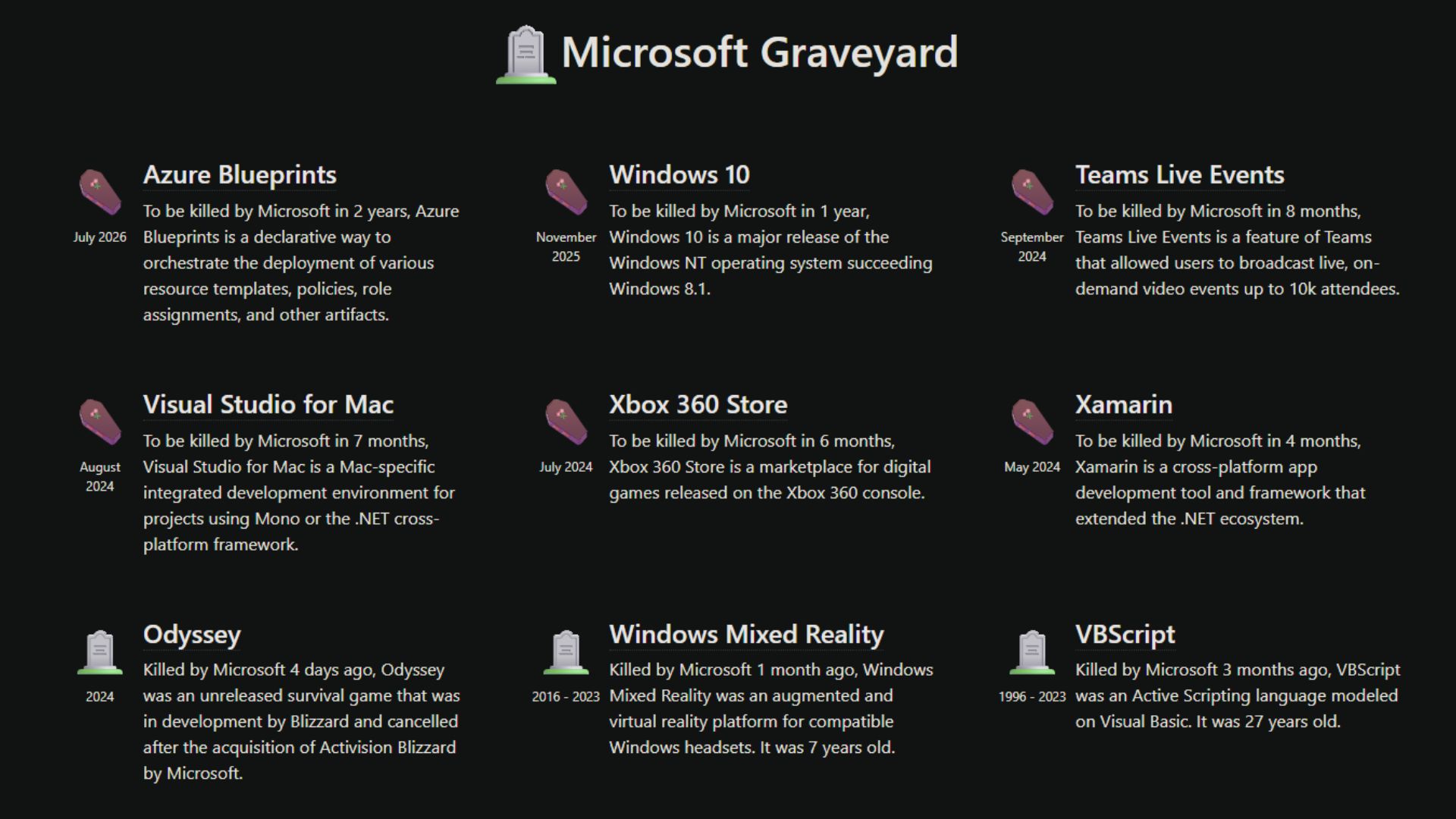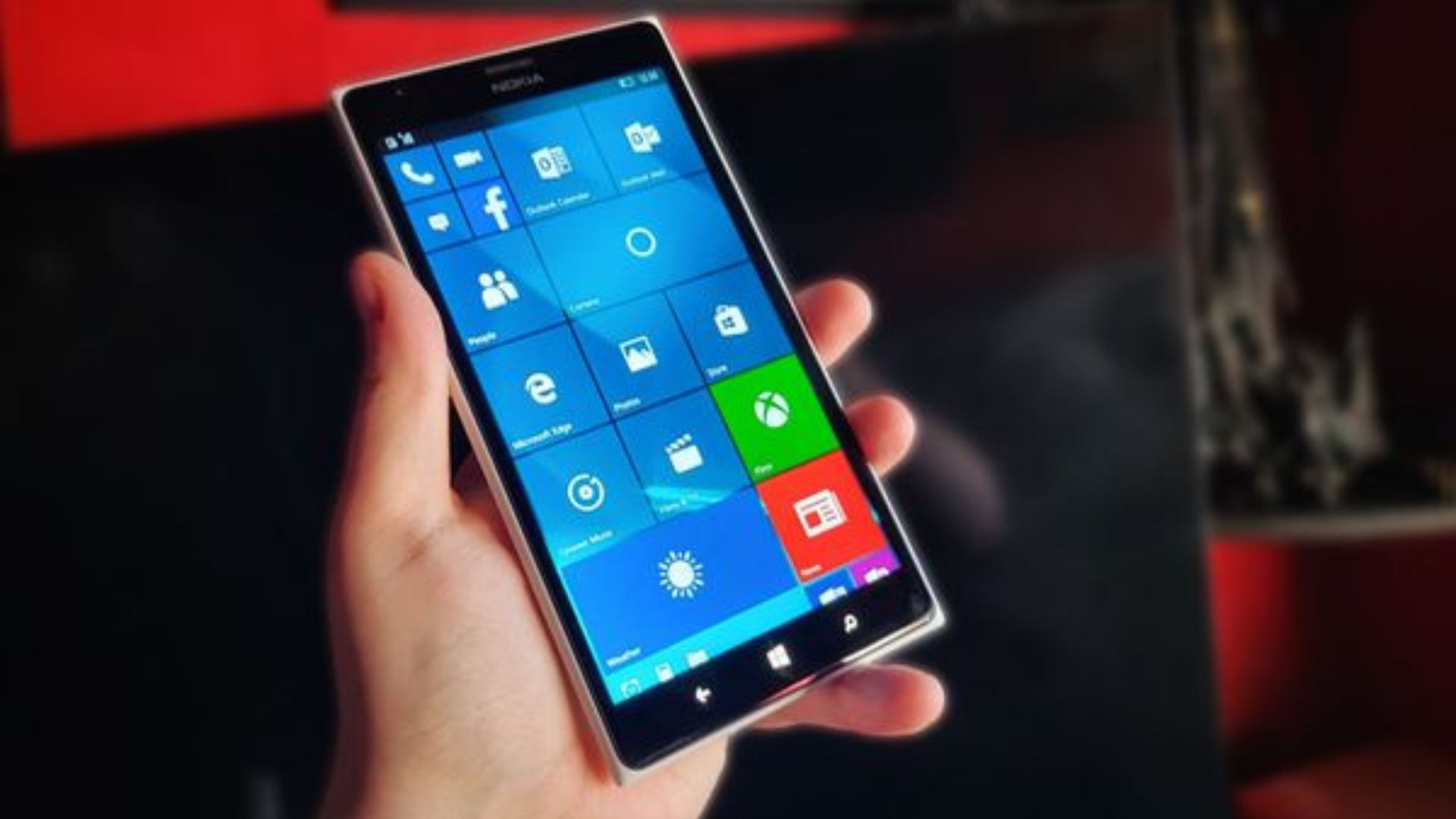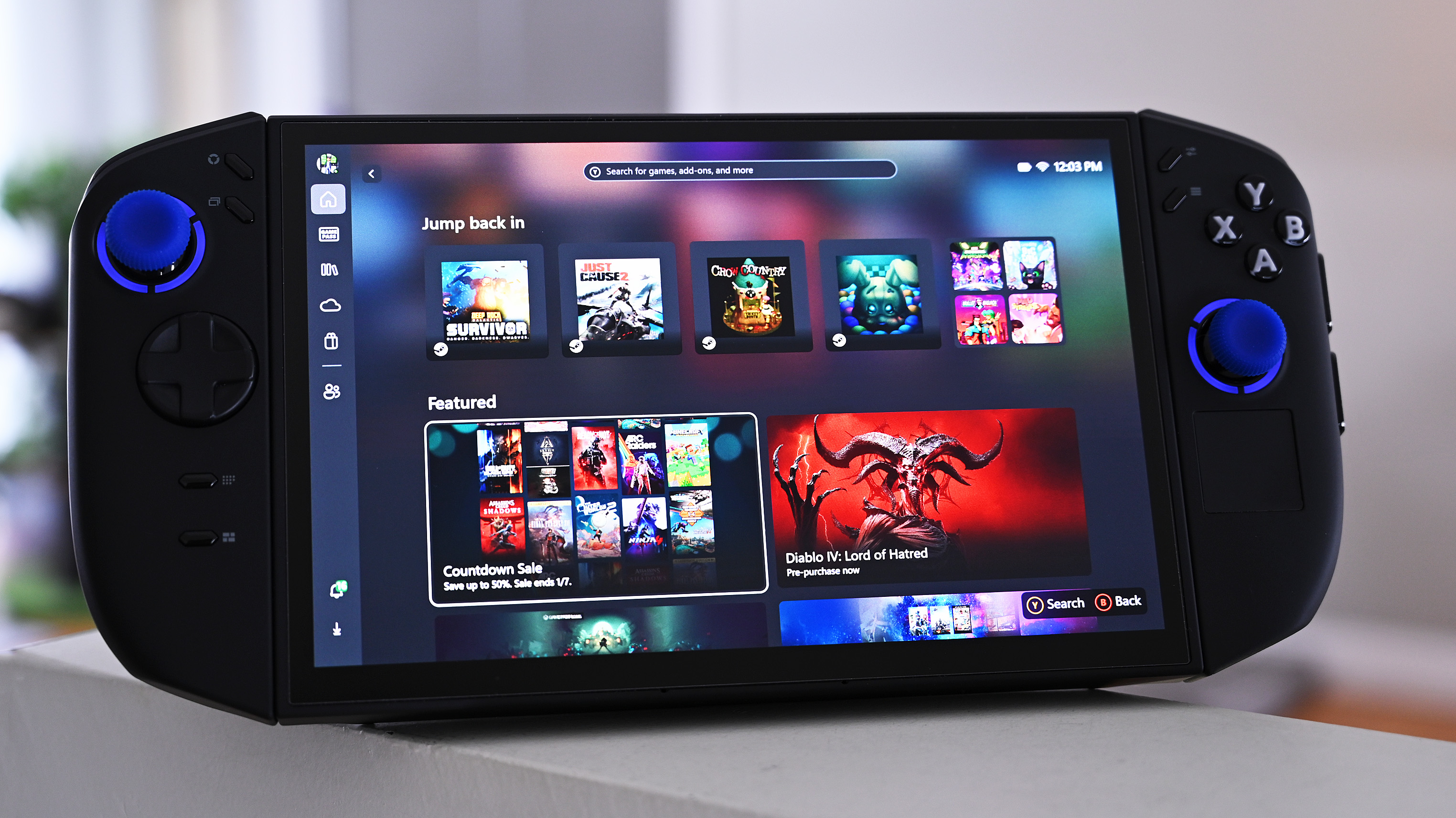Microsoft Graveyard: Microsoft’s missed opportunities with products that showed great promise but lacked proper execution
Microsoft Graveyard is an open-source platform that lists deprecated Microsoft products and those set to hit their end-of-support date soon.

What you need to know
- A developer recently launched a new website dubbed Microsoft Graveyard, where users can keep track of all the products Microsoft has deprecated.
- The website also features products that are set to hit their end-of-support date soon, like Windows 10.
- The project is open-source, which means users can contribute by adding more deprecated products or even making suggestions.
In 2023 alone, Microsoft killed 16 different features in Windows 11, including Cortana, WordPad, Windows Mixed Reality, and more. Admittedly, it's quite a daunting and tedious task to keep track of all the products and services Microsoft has pulled the plug on over the years — even for me, despite covering Microsoft-related news for over six years.
Luckily, a new website, "Microsoft Graveyard," was recently launched to help users keep track of all deprecated Microsoft products and those set to hit their end-of-support date soon, according to a spot by Neowin.
Victor Frye is the developer behind the recently launched Microsoft Graveyard website, which per the description at the bottom of the page "was inspired and heavily influenced by the Killed by Google project." The developer further describes the project as outlined below:
"Microsoft Graveyard is the virtual graveyard for all products killed by Microsoft; a free and open source collection of dead Microsoft products built by a passionate and nostalgic community. Our objective as a community is to provide factual, historic information for the products listed here."
The unofficial website lists many products that Microsoft has killed off over the years, including the Windows Phone, Xbox 360, Internet Explorer, Kinect, and more. Additionally, the website also provides you with a bit of context about the product, including a brief description of what the product was, when it was launched, and how old it was at the time when Microsoft decided to pull the plug on it.
For example, under Cortana is the following description:
"Killed by Microsoft 5 months ago, Cortana was a virtual assistant that used Bing search engine to perform tasks. It was 9 years old."
All the latest news, reviews, and guides for Windows and Xbox diehards.
Interestingly, the products featured on the website don't direct you to the same source when you click on them for more detailed and contextual information. Instead, you'll be redirected to Wikipedia or other media outlets like Neowin, The Verge, or even yours truly — Windows Central. When you click on Channel 9, you'll be redirected to our news post from 2021, where we covered Channel 9 being absorbed into Microsoft Learn.
As highlighted above, the website also features Microsoft products that are set to soon hit the axe. However, you have to scroll through the entire list to identify them, since they aren't listed in a separate list on the website.
The project is open-source, meaning everyone is welcome to contribute towards its growth by heading over to GitHub and including more deprecated products to the list, making suggestions geared toward improving the project, and more. Microsoft also has a dedicated page where it lists deprecated products that are no longer under development.
Gone too soon: Windows Phone and Microsoft Band

Microsoft Band is an amazing product, which sadly, didn't stand the test of time. It's apparent that it still holds a special place in our Managing Editor, Richard Devine's heart, and he misses it dearly if the sentiments shared in his recent post are anything to go by:
"I'm not really a very active person, but the Microsoft Band was just an awesome product. It was different from the other fitness trackers and emerging smartwatches; it was exciting and really grabbed attention. We got a sequel, of course, but like all amazing Microsoft products, it was destined for the scrap heap. I haven't really enjoyed a wearable since, with many being tried on my wrist and none lasting more than a few weeks."
It's no secret that Microsoft was on to something with Windows Phone. Even the company's CEO, Satya Nadella, thinks so, too. In an interview last year, the CEO referred to pulling the plug on Windows Phone as a strategic mistake.
Microsoft was recently ranked as the world's most valuable company in the world, having beaten Apple due to the decline in sales (especially in China) for its money-maker, the iPhone. I can't help but wonder where Microsoft would be if it had positioned itself better and kept Windows Phone under development till now. Maybe higher than its current $3 trillion market cap?

Kevin Okemwa is a seasoned tech journalist based in Nairobi, Kenya with lots of experience covering the latest trends and developments in the industry at Windows Central. With a passion for innovation and a keen eye for detail, he has written for leading publications such as OnMSFT, MakeUseOf, and Windows Report, providing insightful analysis and breaking news on everything revolving around the Microsoft ecosystem. While AFK and not busy following the ever-emerging trends in tech, you can find him exploring the world or listening to music.
